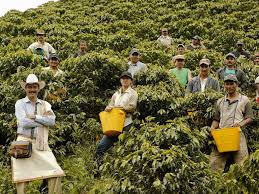
Small family owned coffee farms facing major tariff concerns.

Small family-owned coffee farms are facing significant challenges due to major tariff concerns impacting the coffee industry. These tariffs have the potential to disrupt the livelihoods of countless families who rely on coffee cultivation for their income.
What are the Tariffs and Why are They a Concern?
Tariffs are taxes imposed on imported goods, and in the case of coffee, they can have a substantial impact on both producers and consumers. When tariffs are increased, the cost of importing coffee rises, leading to higher prices for consumers. This can result in a decrease in demand for coffee, ultimately affecting the income of small family-owned farms.
How do Tariffs Affect Small Family-Owned Coffee Farms?
For small family-owned coffee farms, the increase in tariffs means lower profits and financial instability. These farms often operate on thin profit margins, and any additional costs can have a significant impact on their ability to sustain their operations. As a result, many farmers are forced to make difficult decisions, such as cutting costs or reducing their workforce.
What Can be Done to Support Small Family-Owned Coffee Farms?
Supporting small family-owned coffee farms is crucial to preserving the diversity and sustainability of the coffee industry. Consumers can make a difference by choosing to purchase coffee from ethically sourced and fair trade brands that prioritize supporting small-scale farmers. Additionally, advocating for fair trade policies and raising awareness about the challenges faced by these farmers can help bring about positive change.
It is essential for policymakers and industry stakeholders to work together to address the impact of tariffs on small family-owned coffee farms. By implementing fair trade practices and supporting sustainable agriculture, we can help ensure the long-term viability of these important businesses and the communities they support.





